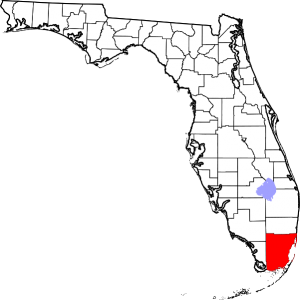NewsDesk @bactiman63
Eastern Equine Encephalitis (EEE)
Florida state health authorities reported one additional human Eastern Equine Encephalitis (EEE) this past week in Suwannee County. This is the second human EEE case reported in the state in 2023 (1st case in St. Johns County).

Image/David Benbennick
Total EEE activity in Florida year to date includes positive samples from 110 sentinel chickens, 11 horses, one sparrow, one laughing gull, and two humans have been reported from 21 counties.
Eastern Equine Encephalitis is a rare disease that is spread to horses and humans by infected mosquitoes. It is among the most serious of a group of mosquito-borne virus diseases that can affect the central nervous system and cause severe complications and even death.
Infection can cause a range of illnesses. Most people have no symptoms; others get only a mild flu-like illness with fever, headache and sore throat. For people with infection of the central nervous system, a sudden fever and severe headache can be followed quickly by seizures and coma. About half of these patients die from the disease. Of those who survive, many suffer permanent brain damage and require lifetime institutional care.
Dengue fever
The Florida Department of Health reported one additional locally-transmitted dengue fever case in Miami-Dade County this past week.

Image/David Benbennick
In 2023, 16 cases of locally acquired dengue have been reported in Broward (2), Hardee, Miami-Dade (12), and Polk counties with onsets in January, March, June (3), July (10), and August.
Twelve out of the 16 local cases serotyped as DENV-3.
In 2023, 244 travel-associated dengue cases have been reported.
Dengue fever is an important mosquito-borne disease worldwide. It is caused by four related dengue viruses (DEN-1, DEN-2, DEN-3, DEN-4) that are related to the viruses that cause West Nile infection and yellow fever.
Subscribe to Outbreak News TV on YouTube
Dengue fever can be a painful, debilitating disease but is rarely fatal. Symptoms appear 3-14 days after the bite of an infected mosquito and include sudden onset of fever, severe headache, eye pain, muscle and joint pain (giving the disease the nickname “breakbone fever”), and bleeding. Gastrointestinal symptoms like vomiting and diarrhea may also be present in some cases. Dengue fever symptoms usually lasts 4-7 days. The disease is often diagnosed incorrectly because the symptoms are similar to influenza and other viruses.
Dengue hemorrhagic fever is a rare but more severe form of dengue infection that can be fatal if not recognized and treated with supportive care. The primary risk factor for hemorrhagic fever is previous infection with a different dengue serotype (i.e. getting DENV-2 if you have already DENV-1 puts you at increased risk of hemorrhagic fever).
Florida Vibrio update: 26 cases, 5 deaths
Florida reports 1st confirmed equine rabies case of 2023
Leprosy: Case report suggest disease is becoming endemic in central Florida


i want to share my amazing experience with Dr Jumba my husband was cheating on me and when i found out we had a fight which lead to him filling for a divorce i cried and fell sick when i was searching about love quotes online i saw people talking about him and his great work whose case was similar to mine they left his contact info i contacted him and he told me not to worry that after 24hrs he will cancel the divorce and be back to me after i did everything he asked me to do to my greatest surprise the next day evening it was my husband, he knelt down begging me to accept him back,thank you once again Dr Jumba you are indeed a blessing to me he can also help you contact
wiccalovespelltools@gmail.com or https://drjumbaspellhome.wordpress.com . +1 908 517 4108